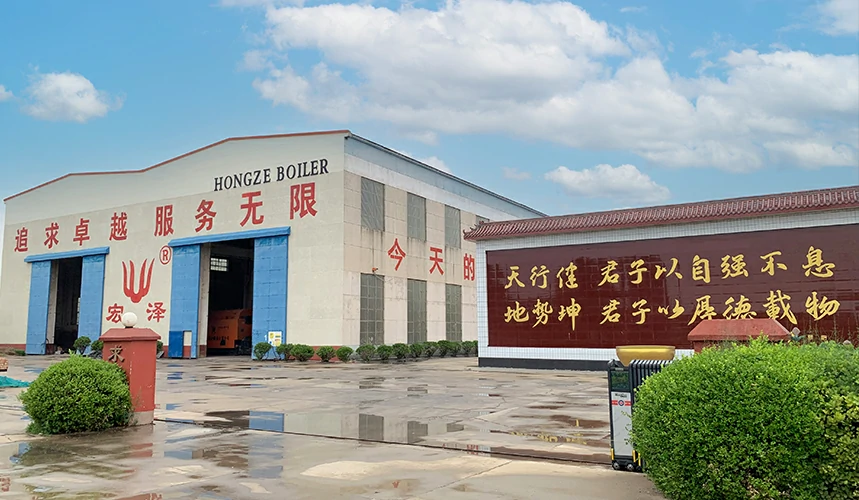
Nov . 08, 2024 15:01 Back to list
hot water furnaces
Understanding Hot Water Furnaces A Key Component of Home Heating
Hot water furnaces are an essential component of many homes, providing warmth and comfort during the cold winter months. These systems utilize hot water to deliver heat to various spaces within a house, ensuring that families can stay cozy even in the harshest weather conditions. This article will explore the fundamental workings of hot water furnaces, their benefits, types, maintenance, and efficiency, helping homeowners make informed decisions regarding their heating systems.
How Hot Water Furnaces Work
Hot water furnaces operate on a simple yet effective principle they heat water and then distribute it throughout the home, typically via a network of pipes and radiators. The process begins with the furnace heating water in a boiler. This can be achieved through various energy sources, including natural gas, electricity, oil, or even wood.
Once the water reaches the desired temperature, it is circulated through pipes to radiators or baseboard heaters in different rooms. As the hot water moves through these units, it releases heat into the surrounding air, warming the living spaces. Cooler water then returns to the boiler to be reheated, creating a continuous loop of warmth.
The Benefits of Hot Water Furnaces
One of the most significant advantages of hot water furnaces is their efficiency. Unlike forced air systems that can lose heat through ducts, hot water systems provide consistent heat without significant loss. They can maintain a stable temperature throughout the house, creating a comfortable environment.
Additionally, hot water heating systems often produce less noise compared to their forced air counterparts. They operate quietly, making them ideal for homes where noise might be a concern. Moreover, hot water furnaces can improve indoor air quality since they don’t blow dust and allergens around the home as forced air systems do.
Types of Hot Water Furnaces
Hot water furnaces come in various types, each designed to meet specific needs. The most common types include
1. Combination Boilers These units provide both hot water for space heating and domestic hot water for sinks and showers. They are efficient and save space, making them popular in smaller homes.
hot water furnaces

2. Cast Iron Boilers Known for their durability, cast iron boilers are robust systems that can last for decades. They are usually favored in larger homes due to their ability to produce significant amounts of heat.
3. Condensing Boilers These high-efficiency systems extract additional heat from exhaust gases, thus maximizing energy use. They are ideal for homeowners looking to reduce energy bills while maintaining comfort.
Maintenance of Hot Water Furnaces
To ensure optimal performance and longevity, regular maintenance of hot water furnaces is crucial. Homeowners should consider scheduling annual inspections with a qualified technician. During an inspection, the technician will check for any leaks, assess the condition of the boiler, and make necessary adjustments to improve efficiency.
Regularly bleeding radiators to remove trapped air helps in maintaining even heat distribution. Additionally, homeowners should keep filters clean (if applicable) and check the expansion tank regularly to prevent issues related to pressure.
Enhancing Efficiency
Efficiency is a significant concern for many homeowners, particularly given rising energy costs. Upgrading to a modern, high-efficiency hot water furnace can significantly reduce energy consumption and lower heating bills. Homeowners can also explore programmable thermostats that allow for better control of heating schedules.
Moreover, proper insulation around pipes and radiators can prevent heat loss, ensuring that the warmth generated is effectively used within the home.
Conclusion
Hot water furnaces play a vital role in keeping homes warm and comfortable during winter months. With various types available, maintaining efficiency and conducting regular maintenance can enhance their performance. By understanding their functions and benefits, homeowners can make informed decisions about heating options that best suit their needs, leading to a cozy and efficient living environment. Whether upgrading existing systems or investing in new technology, prioritizing a reliable hot water furnace contributes to both comfort and energy efficiency in the home.
-
High-Efficiency Commercial Oil Fired Steam Boiler for Industry
NewsJul.30,2025
-
High-Efficiency Biomass Fired Thermal Oil Boiler Solutions
NewsJul.30,2025
-
High Efficiency Gas Fired Thermal Oil Boiler for Industrial Heating
NewsJul.29,2025
-
High-Efficiency Gas Fired Hot Water Boiler for Sale – Reliable & Affordable
NewsJul.29,2025
-
High Efficiency Biomass Fired Hot Water Boiler for Industrial and Commercial Use
NewsJul.29,2025
-
High-Efficiency Biomass Fired Hot Water Boiler for Industrial Use
NewsJul.28,2025
Related PRODUCTS






















